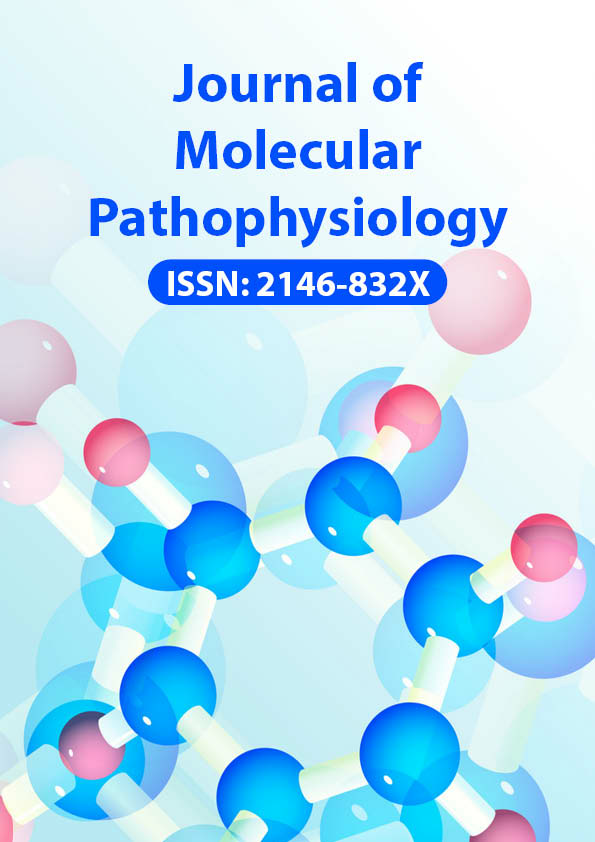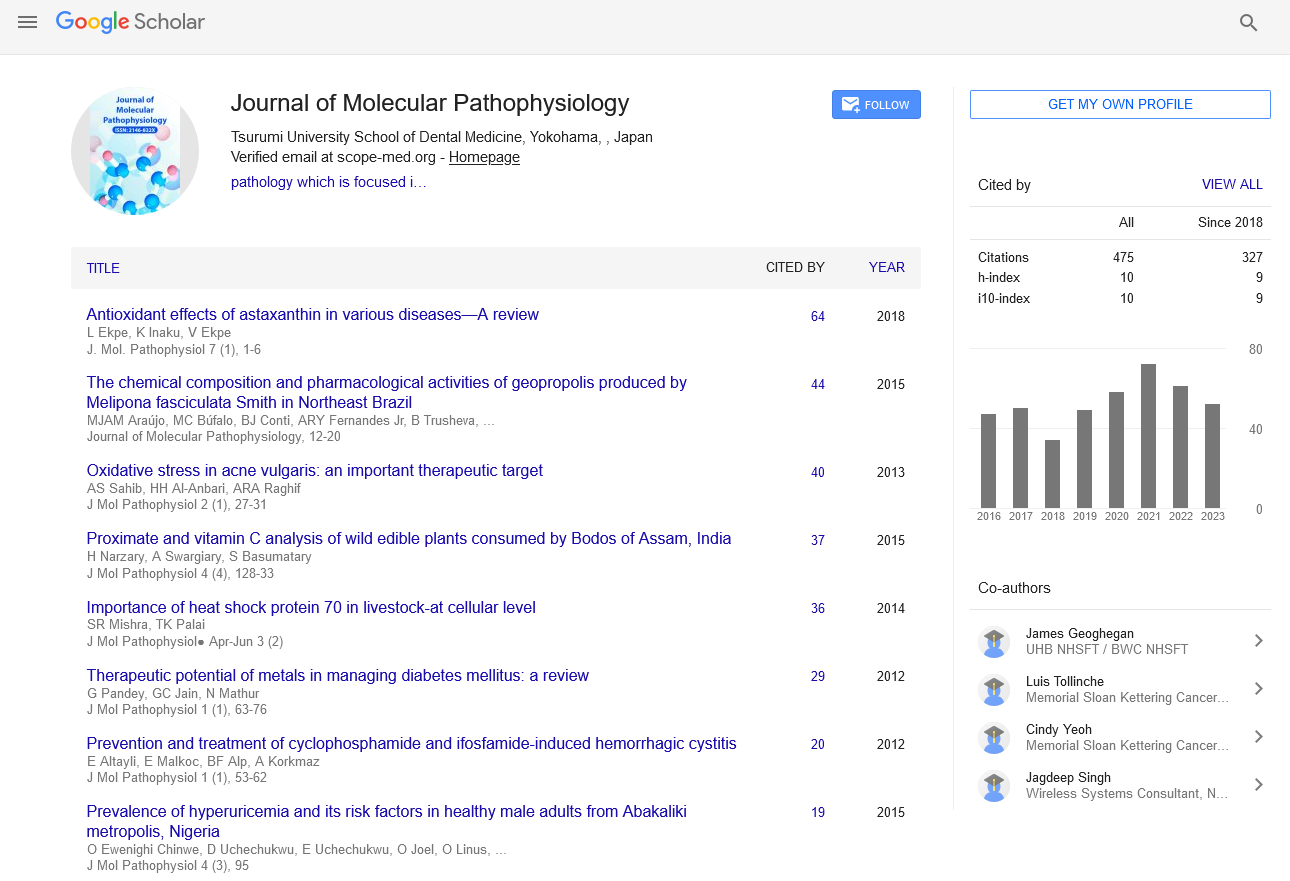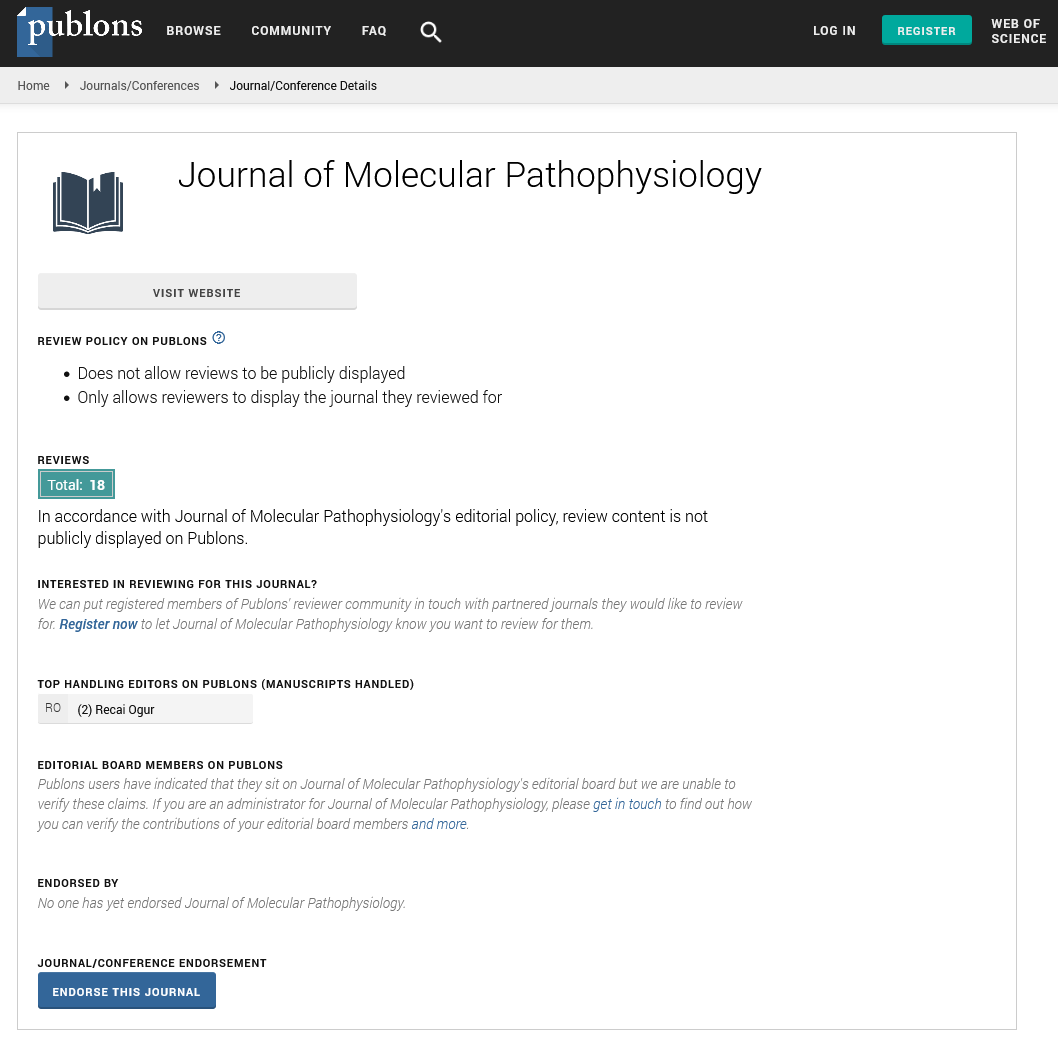Commentary - Journal of Molecular Pathophysiology (2023)
The Complexity of Imbalanced Agents in Immunotoxicity Protocols
Dongsheng Xu*Dongsheng Xu, Department of Immunology, University of Missouri, Columbia, USA, Email: Dongsheng999@gmail.com
Received: 15-Sep-2023, Manuscript No. JMOLPAT-23-119190; Editor assigned: 18-Sep-2023, Pre QC No. JMOLPAT-23-119190 (PQ); Reviewed: 03-Oct-2023, QC No. JMOLPAT-23-119190; Revised: 10-Oct-2023, Manuscript No. JMOLPAT-23-119190 (R); Published: 17-Oct-2023
About the Study
Immunotoxicity, a subset of toxicology, is a critical field that studies the adverse effects of various substances on the immune system. These substances can include chemicals, drugs, environmental pollutants, and even natural compounds. Understanding the mechanisms underlying immunotoxicity is essential for safeguarding public health, ensuring the safety of drugs and chemicals, and preserving the integrity of the immune system. The immune system comprises various components, including white blood cells, antibodies, and the lymphatic system, which work together to defend the body against pathogens. The innate immune system and the adaptive immune system are the two primary branches of the immune system. The Innate Immune System is the body's first line of defense. It includes physical barriers like the skin, as well as white blood cells like neutrophils and macrophages, which recognize and destroy invading pathogens. Innate immunity is rapid and non-specific, providing immediate protection. The Adaptive Immune System is more specialized and precise. It involves immune cells such as T cells and B cells, which can remember specific pathogens. The adaptive immune system plays a vital role in long-term immunity and immunological memory.
Immunotoxicity occurs when various agents disrupt the balance and functioning of the immune system. These disruptions can take several forms and are often a result of direct or indirect interactions with immune components. Certain substances have the direct ability to harm immune cells, leading to their malfunction or death. For instance, exposure to specific substances or medications can cause lymphocytes to undergo apoptosis, which impacts the adaptive immune response. Its direct cytotoxicity prevents body's capacity to develop a strong immune response. Chronic exposure to certain toxins, such as heavy metals or environmental pollutants, can induce chronic inflammation. This chronic inflammation can lead to the overproduction of pro-inflammatory cytokines, causing collateral damage to immune cells and disrupting the immune balance. Inflammation can also impair the ability of immune cells to respond to infections.
Cytokines are signaling molecules that regulate immune responses. Some Immunotoxic agents can disrupt the balance of pro-inflammatory and anti-inflammatory cytokines. For instance, exposure to endocrine-disrupting chemicals can lead to an imbalance in cytokine production, affecting immune homeostasis and increasing susceptibility to infections. Certain substances, including chemotherapeutic drugs and radiation, can suppress the proliferation of immune cells. This can lead to a weakened immune system, making the individual more vulnerable to infections and decreasing the body's ability to respond to antigens.
Immunotoxic agents may trigger autoimmune responses, where the immune system mistakenly attacks the body's own tissues. Antigen-presenting cells, like dendritic cells, play a crucial role in initiating immune responses. Some substances can interfere with antigen presentation, preventing the immune system from recognizing and responding to invading pathogens effectively. Immune tolerance is a mechanism that prevents the immune system from attacking the body's own tissues. Immunotoxic agents can disrupt immune tolerance, leading to autoimmune diseases or increased susceptibility to allergies. Genetic factors can influence an individual's susceptibility to immunotoxicity. Certain genetic variations may make some people more vulnerable to immune system disruptions caused by environmental toxins or drugs. The consequences of immunotoxicity can be severe and wide-ranging. They affect not only an individual's health but also public health on a broader scale.
A compromised immune system is less effective at defending against pathogens, leading to an increased risk of infections. This is particularly concerning in the context of emerging infectious diseases. Immunotoxic agents can trigger autoimmune responses, leading to conditions like multiple sclerosis, type-1 diabetes, and systemic lupus erythematosus. These diseases involve the immune system mistakenly attacking the body's own tissues. Immunotoxicity can lead to heightened immune responses to harmless substances, resulting in allergies or hypersensitivity reactions. Common examples include food allergies, asthma, and allergic dermatitis.
Dysregulation of the immune system may prevent cancer cells from being identified and eliminated, allowing them to spread. This may stimulate the development and spread of cancer. Long-term health effects of immunotoxicity may affect a person's general health and quality of life for years to come. Understanding the mechanisms of immunotoxicity is essential for identifying and mitigating risks associated with various substances and agents. The immune system is a complex network, and disruptions in its functioning can lead to a wide range of health consequences, from increased susceptibility to infections and autoimmune diseases to cancer and allergies.







